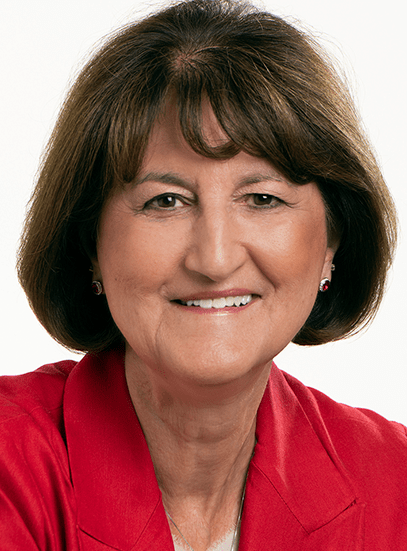Title IX, a landmark federal civil rights law prohibiting sex-based discrimination in education programs and other activities that receive federal funding, is celebrating its 50th anniversary.
“It wasn’t that long ago that your gender would have had a really big impact on what you were able to do and how much you could achieve,” says Annika Scharosch, JD, Eastern’s Title IX coordinator and associate vice president for civil rights, compliance and enterprise risk management.

Today’s students don’t have to worry about being denied admission to professional programs or held back due to their gender, adds Scharosch. That includes women who want to become doctors and men want to become nurses, as well as the LGBTQ+ community.
As a licensed attorney who previously served as a Washington state assistant attorney general in Spokane, Scharosch is keenly aware that Title IX helped to eliminated bans and quotas for the number of women admitted into law schools.
At Eastern, past enrollment numbers portray the increased opportunities created by Title IX. Back in 1972, the year that Title IX became law, there were 3,806 men and 2,920 women enrolled. In 2021, Eastern’s student body included 6,562 women and 4,312 men.
Nationwide, U.S. Census Bureau data shows that in 1970, pre-Title IX, just 8% of women earned a college degree. By 2020, the number of female college graduates increased to nearly 33%.
Taking Title IX to the next level, Scharosch said, involves providing training and education to protect students from domestic violence, sexual assault and stalking.
The U.S. Department of Education enforces Title IX, which has undergone changes over the years and is poised to undergo further updates. The Biden administration, for example, has proposed an overhaul of the nation’s campus sexual assault rules to coincide with Title IX’s anniversary. The proposal would expand protections to LGBTQ students, bolster the rights of assault victims and broaden colleges responsibilities in addressing sexual misconduct, according to the Associated Press.

To educate a younger generation about the history behind Title IX, earlier this spring EWU’s Diversity Week featured a showing of “Rise of the Wahine: Champions of Title IX”, which documents the efforts of Donnis Thompson, U.S. Rep. Patsy Mink, and Beth McLachlin as they fought for women’s right to play sports.
EWU Athletic Director Lynn Hickey says she experienced this changing landscape firsthand, both as a pre-Title IX high school basketball player and a post-Title IX college athlete, coach and athletics director.
“I grew up playing half-court basketball in the state of Oklahoma,” recalls Hickey. Back then, women’s basketball was a three-on-three, half-court game because it was thought that females didn’t have the stamina to compete full-court.
When Hickey graduated from high school, few colleges and universities offered women’s basketball, so she chose to play at Ouachita Baptist University, where she earned a bachelor’s degree in education.

Over the years, as Title IX’s impact on athletics created a battleground for women’s rights, thousands of men and women championed equity. Hickey credits her father, who coached middle and high school sports for 47 years, with inspiring her love of athletics.
Still, it took her years to even consider the possibility of becoming a coach and athletics adminstrator: “It’s hard to dream of what you want to become, and what opportunities are there, when you don’t see anybody who looks like you already doing it.”
Hickey’s groundbreaking resume includes becoming the first female athletic director at the University of Texas, San Antonio and, at the time, the only female Division 1 athletic director in Texas. When she left the job, 18 years later, her list of accomplishment included starting football, women’s soccer and women’s golf programs.
“For the first 25 years of my career, I was typically the only female in the room,” said Hickey, adding that today she is one of four female athletic directors in the Big Sky Conference, and is honored to lead a staff that includes female coaches, trainers and administrators.
Hickey counts raising her daughter, Lauren, as her greatest accomplishment. She credits her husband, Bill, whose own resume included working as a university professor and head baseball coach, with supporting her career as they parented their daughter, Lauren, together.
Lauren not only grew up in a world where her mother was high-achieving in the male-dominated field of collegiate athletics, Hickey says Lauren’s aunts included a doctor, two attorneys and a social worker.
“Just think that in one generation how everything has changed,” Hickey reflects. “You have to give Title IX credit for that turnaround.”

